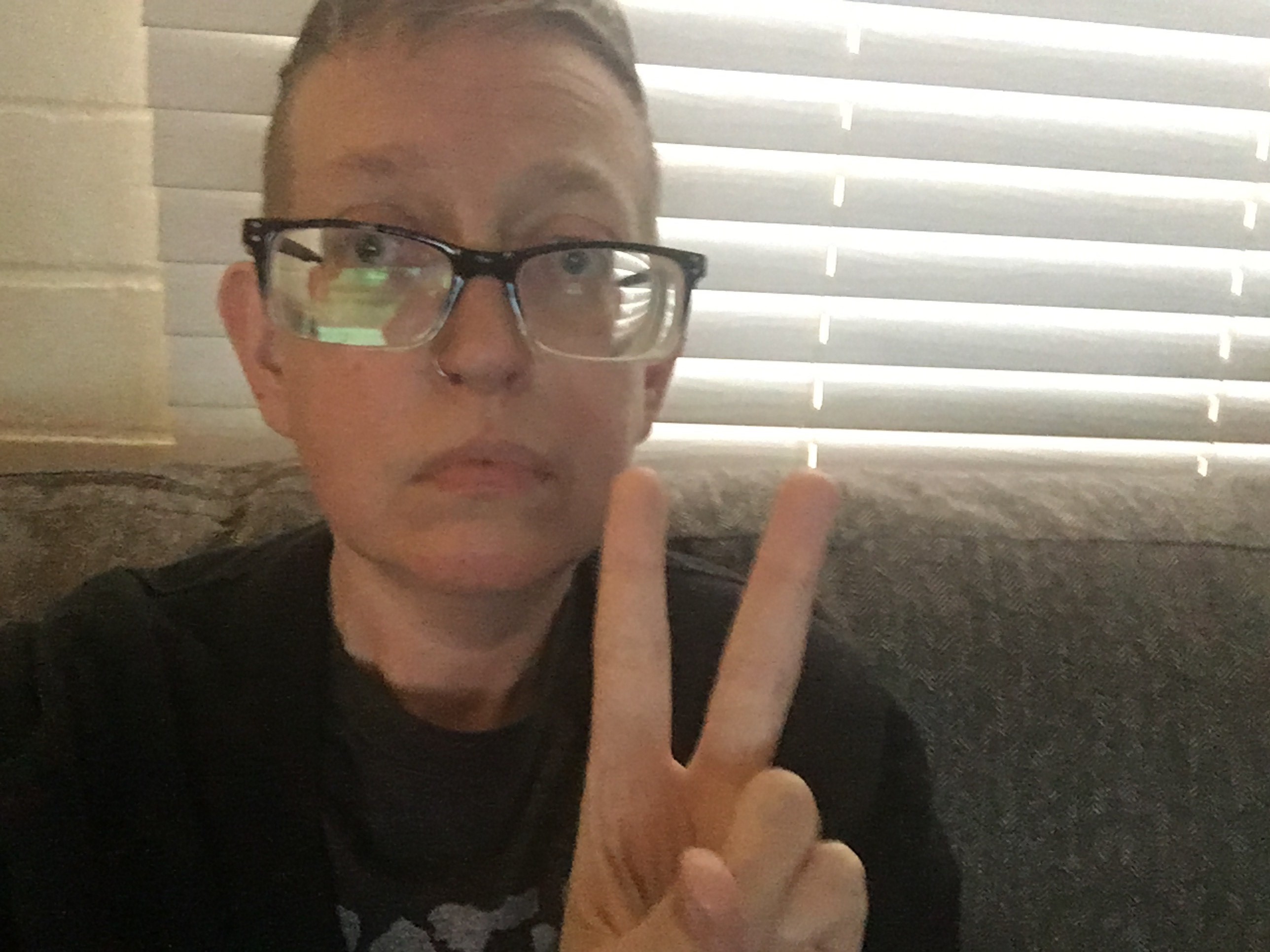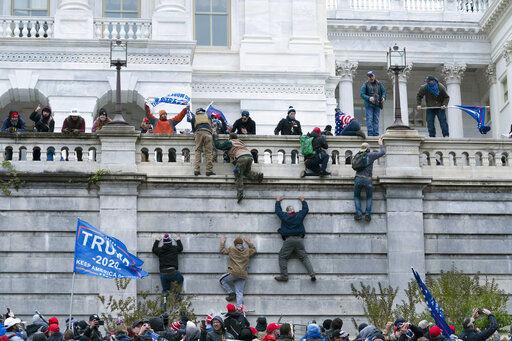
As I write this, the US Capitol is still under siege by a group of American terrorists who were provoked by the words and actions (or inactions) of a small-minded conman who managed to slither his way into the Oval Office.

I watch like so many of my fellow Americans: with horror, disbelief and sorrow. That we are leaned toward our televisions, watching the insurrection against democracy itself, seems like the only fitting way for 2021 to begin. I do hope that when this piece is published, the riots are over and that no one is dead.
President-elect Joe Biden spoke to the nation this afternoon. He spoke about the pursuit of power versus the pursuit of common good. The distinction seems simple. For my students, those who attend FALA, they have been smothered in regular discussions about “common good” as it is one of our school’s Habits of Heart and Mind. Some of them might even think of the phrase “common good” in the same way I thought of phrases I recited every morning in the Pledge of Allegiance, or in the Our Father: just words. Just a bunch of words I have been told to say.
When Joe Biden spoke, I listened with tears in my eyes. Not that the speech was particularly moving (it wasn’t), but just that I was afraid. I needed to know someone up there (in the machine of D.C.) is in control, is sane, is ensuring the wheels keep moving forward. He underscored the importance of striving not for power, but for common good.
When I talk about the work I do as an educator, when I tell the stories, when I wax poetic about my love for the profession, at the root of that love, that passion is the desire to behave in a way that leaves the world a bit better than it was when I came into it. Even in the curriculum I write, I am attempting to consider whether or not what we are about to study, what we are about to do, what we are about to write is going to leave us better or worse as people. Will my students be improved or harmed by what I am asking of them? Because these students will grow up to be my neighbors, my doctors, my nurses, my nieces’ teachers and professors, caretakers for many of us in our old age. These students will grow up to run the country in which I and those after me will reside, and I want my country to persist in such a way that improves its citizens in ways that money alone cannot.
Money cannot improve your soul. If Donald John Trump (and his family) hasn’t shown us that money has nothing at all to do with character, then we are impervious to learning this truth.
Power for power’s sake is empty. Attaining power for power’s sake might earn you sycophants and afford you the space to live in blissful delusion, but it is empty. As someone who frequently stares down the barrel of her own mortality, I can tell you this: unless you were acutely deprived, you will not end your days wishing you had more power.
And when we do have power—and if we make it to adulthood, we eventually will: power in our careers, in our communities, in our families—we choose how we use it. Do we use it to benefit only ourselves and our friends and family? Or do we use it for the aforementioned, but mainly for the common good? Power and money are (maybe) not inherently bad things, but how they are used makes all the difference.
And then there’s privilege, which can be just as dangerous and corrosive as money and power. This is for another post.
When this is published, maybe some of the rioters will be speaking to the press. Maybe they’ll be saying they were exercising a right, or being “patriots,” or maybe they’ll say they were standing up for something.
Prior to the election of Trump, I worked to remain fairly apolitical in the classroom. In education, there’s an unspoken rule (that many conservatives wish to make explicit) that politics do not play a role in the classroom.
Since Trump was elected, politics have seeped into the classroom whether I or my students wanted them to. School shootings. Mass shootings. In Arizona, families were being torn asunder in our own backyard. The pandemic hit. We were suddenly all homebound. Trump routinely broadcast lies, and educators were put in situations where it was impossible to remain political. I found myself saying, to my students, “He lies.” Because Trump lied. He lied all the time, and he will lie as long as he draws breath. “He is a racist,” I told my students. Because Trump is a racist. He stoked racial hatred all the time. Under Trump, I could not engage in doublespeak. I could not hedge, pretend for my students that we had to respect “The Office” even if it was occupied by a madman.
Tomorrow morning, when this piece runs, I will have to talk about this with my students. We will likely talk about little more than this. Trump, his die-hard supporters (like the domestic terrorists at the Capitol) and the members of Congress who continue to support this morally bankrupt narcissist for reasons unknown (power or money or both) are responsible for traumatizing my students.
When this piece runs, I will have to help them process yet another entirely avoidable trauma. We will talk politics, but we will also talk compassion, peace and common good.
I do think “keeping politics out of the classroom” is how we produced thousands of Americans who were willing to commit acts of violence and treason for a conman who cares nothing about them. This is not to say every educator, come morning, ought to foist their every political conviction upon their students, but maybe we don’t run from these conversations even if we’re not in history or civics class.
This is probably the first year that those who might otherwise “stay out of politics” have been forced—whether by the pandemic, the protests or a family member’s addiction to a conspiracy theory—to engage in politics. People who might otherwise not pay attention have suddenly had to pay attention because what happens politically is frontally impacting them personally. White Americans (and I saw virtually all angry white faces in the mob that descended upon Capitol Hill to subvert democracy) have had the distinct privilege of being able to, for years, ignore politics. I mean, unless it was about war or money. White Americans have had decades, damn near centuries, to be apolitical.
What we saw yesterday was white people who are angry that politics are impacting their life. Notably, they are angry they cannot go to Olive Garden without a mask, or drink at their favorite watering hole, or they are angry because they are unemployed and bored. They are angry that the politics they believed they could neglect finally manifested in their daily lives: the kids are home from school, can’t go anywhere without a mask, got laid off today.
I can guarantee that many of them are angry because they are poor.
I write this not as an apologist. The men and women who violently attacked democracy (some even bringing their children) are shameful, beyond reproach, and the reason I do not know if we can ever completely heal as a country. To be brutally honest, I’m not sure I want healing with a person who would be willing to participate in the treachery we all witnessed on Wednesday. And I can tell you we know all we need to know, and much more, about the “heart and mind” of Donald Trump. We must render him unto the trash bin of history with other dictators and wannabe dictators who killed many, who were godless, cowardly, who were given great power and exploited that power for personal gain.
This is an American story.
This is happening in real time.

